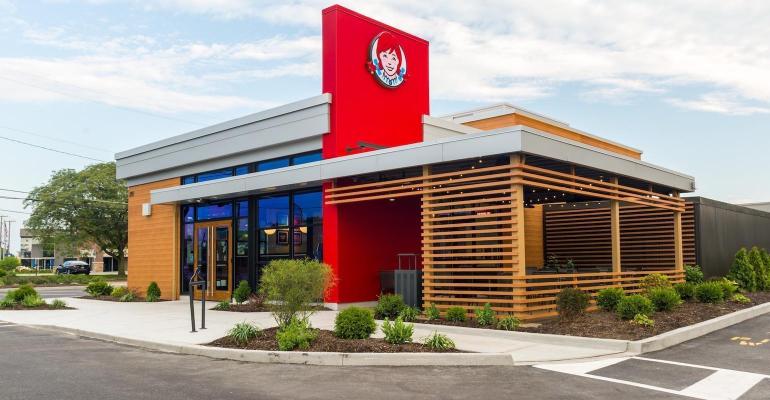The Wendy’s Co. saw breakfast sales, boosted by new French Toast Sticks, accelerate through the second quarter and expects average weekly sales to reach $3,000 by year’s end, the CEO said Wednesday.
The Dublin, Ohio-based burger brand released earnings for the third quarter ended Oct. 2 and Todd Penegor, Wendy’s CEO and president, said he expects breakfast, introduced in March 2020 as the pandemic hit, to continue to grow beyond its current $2,700 a week average sales level.
“We launched French Toast Sticks, our first major menu innovation in the U.S., which drove a meaningful acceleration in the U.S. breakfast sales over the course of the quarter,” said Penegor on an analysts call. “We have received an overwhelmingly positive reception from our customers, proving just how much growth is ahead of us at the breakfast daypart.”
Penegor said Wendy’s breakfast, which was rolled out earlier this year to units in Canada, has possible innovation open in the area of breakfast beverages after introducing French Toast Sticks in August.
“We are incredibly proud of the success of our French Toast Sticks launch,” he said. “This sweet craveable morning treat has quickly become our No. 1 selling breakfast item. The launch helped us maintain our morning meal dollar share in the QSR burger category and drove a meaningful acceleration in U.S. breakfast sales over the course of the quarter with average weekly sales approaching $3000 as we exited Q3.”
The French Toast Sticks and a $3 croissant promotion provided confidence in reaching our goal of $3,000 average weekly breakfast sales by year’s end, he said.
Breakfast sales momentum increased in the third quarter beyond the $2,700 a week levels in the second quarter. “It really accelerated nicely in the back half of Q3,” Penegor added.
“We remain committed to our $16 million global investment in breakfast advertising this year just as we remain committed to fighting for our fair share of the QSR breakfast business,” Penegor said.
Digital sales momentum held at about 9.5% of sales domestically and 15% internationally, Penegor added.
“We expect these results to accelerate even further in the coming quarters as we launched our loyalty program in Canada just days ago,” he said, adding that delivery typically peaks in the fourth quarter. Rewards loyalty members increased about 10% in the quarter as well, he said.
“We are committed to expanding delivery and mobile order access and efficiency, fine-tuning our user experience and further developing our one-to-one marketing program to accelerate our digital business even further across the globe,” Penegor said.
Gunther Plosch, Wendy’s chief financial officer, said inflation eased slightly in the third quarter, falling to about 15% in the period from 19% in the second quarter. For the year, Plosch said, “We are guiding 15% to 16% on commodities and about 8% to 9% on labor.” Traffic was “slightly negative” in the third quarter and price increases were between 9% and 10%.
Penegor said economic uncertainties were providing some trade down to quick-service restaurants from mid-scale casual and fast-casual restaurants.
“So that's a good benefit when you think about income cohorts,” he said. “You are seeing the under $75,000 [annual income] consumer, which is over 50% of our business, a little more strapped. You're seeing them impacted in the industry on the frequency front. But the good news is we continue to gain traffic share with that under $75,000-income cohort.”
For the third quarter ended Oct. 2, Wendy’s net income was $50.5 million, or 24 cents a share, up from $41.2 million, or 18 cents a share, in the same period a year ago. Revenues increased to $523.2 million from $470.3 million in the prior-year period.
Wendy’s same-store sales were up 6.9% globally, with gains of 6.4% in the United States and 10.8% internationally.
Wendy's, founded in 1969, has about 7,000 restaurants worldwide.
Contact Ron Ruggless at [email protected]
Follow him on Twitter: @RonRuggless





